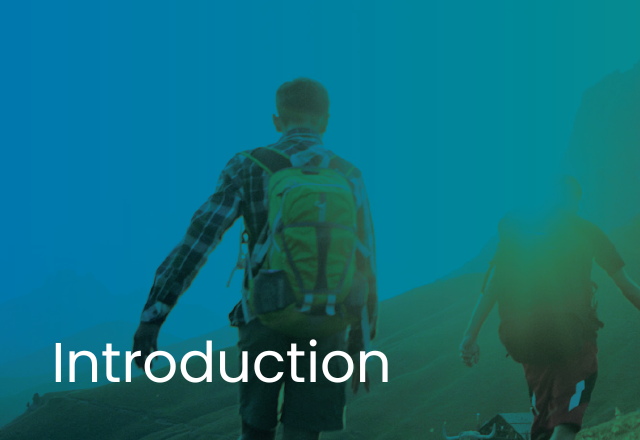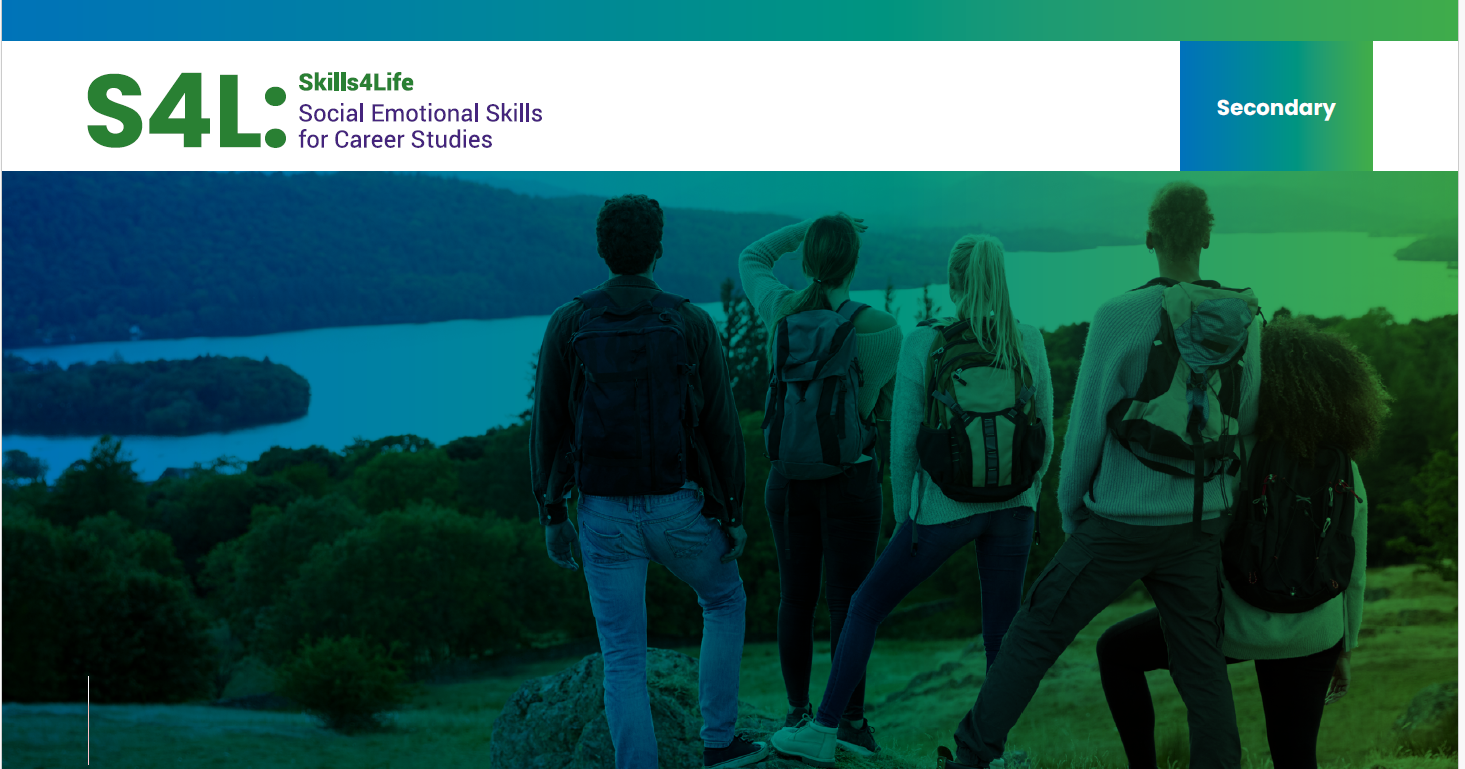
Welcome to Skills for Life (S4L)
How was S4L developed?
S4L was developed collaboratively by mental health experts, educators, and researchers. Youth also provided their input to be developmentally-tailored to the social-emotional needs of Grade 10 youth and support their wellbeing at school, at home, and in the workplace. It was developed over ten years with School Mental Health Ontario with a strengths-based approach and through an identity-affirming and culturally safe, and responsive lens. S4L was supported by a private foundation, the Ontario Ministry of Education through the School Mental Health Ontario initiative, and by the Ontario Secondary School Teachers’ Federation.
For more information on the process of developing S4L, please see our published article available here.


What was the S4L Outcome Evaluation?
The S4L outcome evaluation aimed to assess the effectiveness of the resource using a robust evaluation that compared feedback from students who received S4L in their Careers class in Fall 2023, with those who had not yet taken the course. Two different district school boards in Ontario participated in the evaluation. A larger evaluation was planned and several district school boards were invited to participate; however, representatives indicated that schools were still dealing with the after-effects of COVID-19 and were not ready to embark on an evaluation.
In the Fall 2023 semester, five classes in three schools participated in the S4L Outcome Evaluation. All Grade 10 students were invited to participate in two brief online surveys about student well-being, once they had received parental permission. Students who completed the surveys received two community service hours and an honorarium. In total, 158 students completed the survey. Five students also participated in online focus groups to share their experiences and feedback on the S4L lessons.
What were the results for students?
Students valued class discussions and interactive activities. In focus groups, students said they enjoyed activities that included opportunities for class discussion, and that the chance to exchange thoughts was an important part of reflecting on and better understanding their own experiences.
While the sample of students responding to the survey was too small to detect statistically significant effects, a few areas were promising in terms of effect size, particularly when analyzed together with qualitative data. Specifically, S4L students tended to indicate using strategies for stress management, self-care, and social support as ways to cope with stressful situations, more so than students who did not receive S4L.
In focus groups, students reported using diverse strategies to cope with stressors and to communicate, such as:
- Breathing exercises to help with anxiety.
- Talking to others about stressful situations.
- Acknowledging stress and using multiple strategies to manage it.
- Using “I” statements to communicate feelings.

S4L students also reported modest improvements in self-management and mental wellbeing. Analysis of survey data suggests that students who received S4L experienced slight increases in their sense of self-efficacy in managing their own emotions, whereas there was little change amongst the comparison group.
S4L students reported improved ability to communicate with adults and peers. Students who received S4L had slight increases in their use of assertive and respectful communication with others while the comparison group had slight decreases in this same measure.
What were teachers’ impressions?
Educators found the resource easy to use and made minimal adaptations to it. They also reported that planning and preparation time was reasonable.
Generally, teachers indicated that S4L lessons and activities were well-received by their classes. During interviews, the following activities and lessons appeared to have resonated most:
- Classes were most engaged when prompted with open-ended discussion questions.
- Reflection activities also appeared to be interesting to students, who indicated they appreciated the time to consider their personal experiences and draw connections with the lesson material.


Although teachers recognized the limited timeframe to observe changes, they said they did notice some positive shifts in classroom dynamics immediately after using S4L:
- More camaraderie among students, such as “stronger” students being more inclusive or supportive of other students.
- More rapport and trust built between teachers and students.
What’s next for S4L?
While the S4L outcomes evaluation wasn’t the definitive test of effectiveness that was planned, these results align with the results of an earlier pilot test, with program theory, and with the research literature on social emotional learning interventions. Together, these results indicate that S4L is a promising mental health promotion initiative appropriate for 15-17 years-old and may also be relevant for youth outside of a school setting.
Given the promise of S4L as a mental health promotion initiative, SRDC continues to explore opportunities where S4L can enhance development of students’ as well as young adults’ social emotional learning skills both inside and outside of schools. To date, S4L outcomes have only been evaluated within a school setting.
For more information, please read the Companion document for school boards.
Program Modules and Lessons

Promoting Mattering for Self and Others
Explore the importance of mattering to self and others.

Exploring Identity and Acknowledging Strengths
Exploring the importance of self-awareness and strengths.

Communication and Conflict Resolutions
Explore the importance of effective communication and conflict resolution.

Understanding stress and managing transitions
Explore the importance of understanding transition stress and managing emotions.

Managing stress at school and in the workplace
Exploring the importance of self-awareness and strengths.
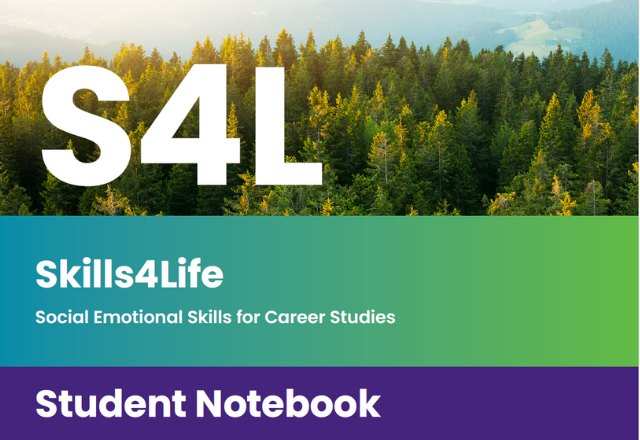
Student Notebook
The notebook is a tool for students to complete lesson-related activities and to capture their thoughts on the topics covered.
PowerPoint Presentations
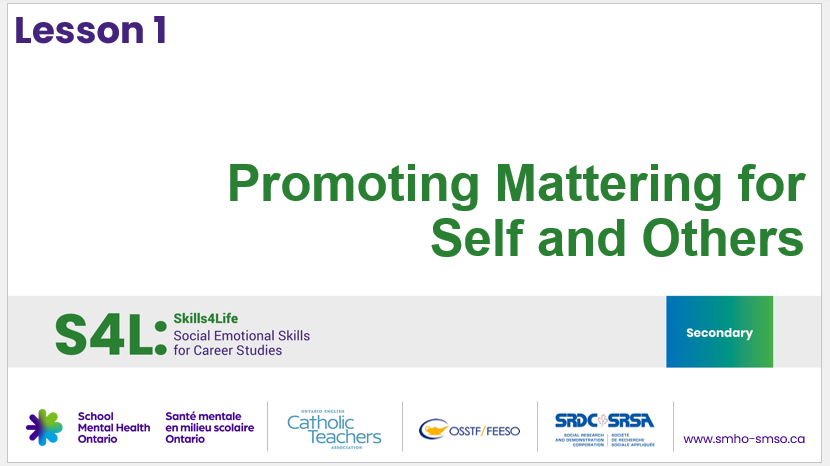
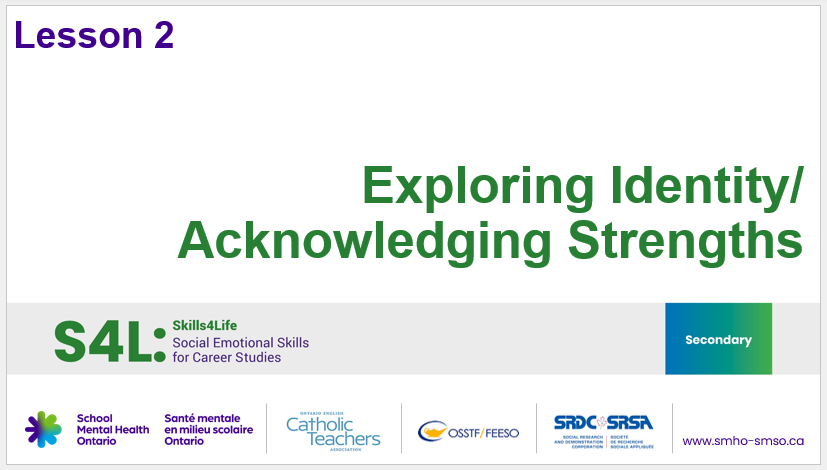
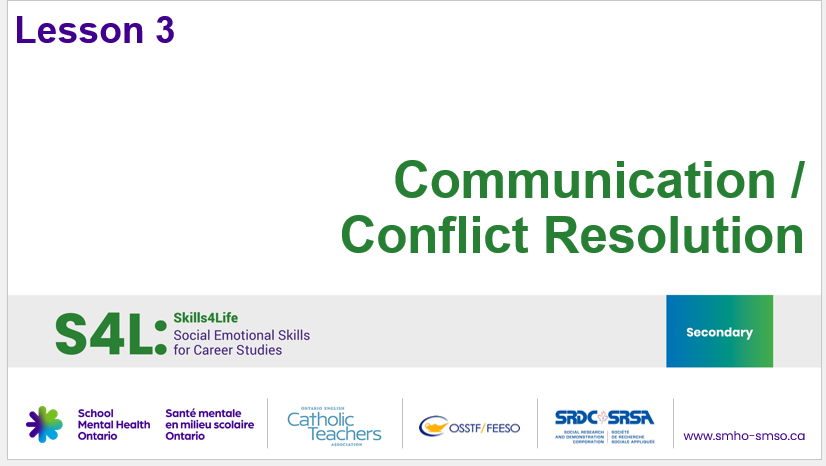
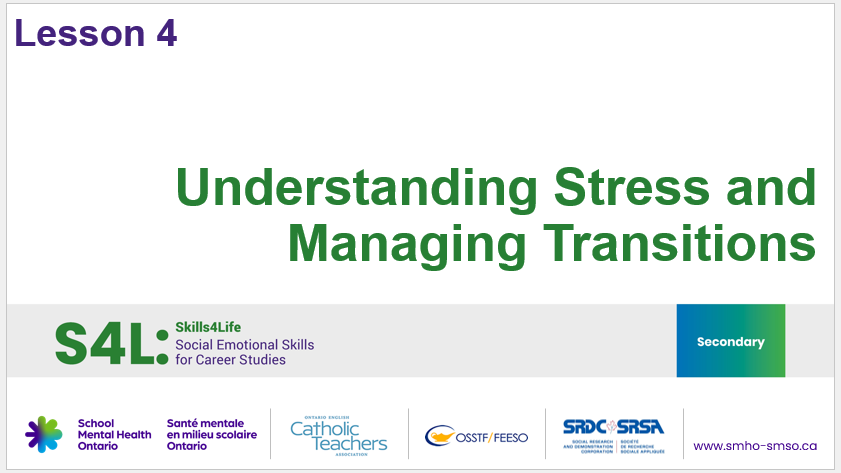
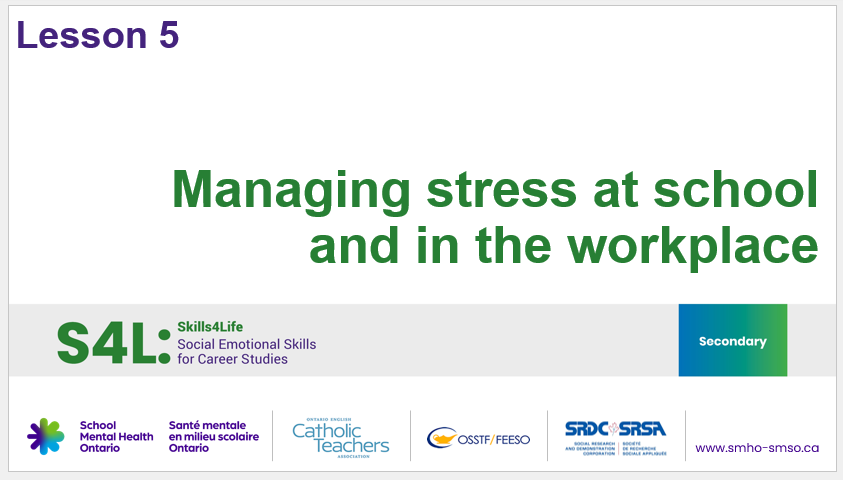
About SRDC – A Project Partner
The Social Research and Demonstration Corporation (SRDC) is a non-profit research organization created specifically to develop, field test, and rigorously evaluate new programs. SRDC's two-part mission is to help policymakers and practitioners identify policies and programs that improve the well-being of all Canadians, with a special concern for the effects on the disadvantaged, and to raise the standards of evidence that are used in assessing these policies.
Since its establishment in December 1991, SRDC has conducted over 550 projects and studies for various federal and provincial departments, municipalities, as well as other public and non-profit organizations. SRDC has offices located in Ottawa and Vancouver and satellite offices in Calgary, Hamilton, Montreal, Regina, Toronto, and Winnipeg.
